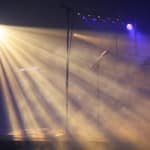Judge Rules “Blurred Lines” Bears Copyright Similarities to Marvin Gaye’s Song
 Los Angeles – Robin Thicke and Pharrell Williams have lost the first round of their court battle over copyright infringement with Marvin Gaye’s family. Judge John Kronstadt denied Thicke’s and Williams’s motion for summary judgment ruling that there are similarities between “Blurred Lines” and Gaye’s “Got to Give It Up” and that those similarities are enough for the case to be sent to trial.
Los Angeles – Robin Thicke and Pharrell Williams have lost the first round of their court battle over copyright infringement with Marvin Gaye’s family. Judge John Kronstadt denied Thicke’s and Williams’s motion for summary judgment ruling that there are similarities between “Blurred Lines” and Gaye’s “Got to Give It Up” and that those similarities are enough for the case to be sent to trial.
The judge wrote in his decision that lawyers for the Gaye family have shown sufficient proof that certain elements of “Blurred Lines” may be “substantially similar” to protected, original elements of “Got to Give It Up.” The judge also pointed to significant similarities in the two songs’ hooks, baselines, signature phrases, keyboard chord and vocal melodies. Indeed, these unique song structures and features may constitute “protected expressions,” the judge ruled. Also, according to court documents, all of those who created “Blurred Lines” admitted they were familiar with Gaye’s hit before they wrote the song.
The lawsuit was filed by Thicke and Williams in August 2013 after they were contacted by Gaye’s family alleging copyright infringement. Later, Gaye’s representatives filed a counterclaim alleging infringement regarding a second song, citing similarities between Thicke’s “Love After War” and Gaye’s “After the Dance.” Both sides presented experts such as musicologists and argued over the nuances of copyright law.
The hearing even addressed Thicke’s deposition comments admitting to drug abuse and lying to the media. Thicke told a reporter last year that “Blurred Lines” came out of admiration for “Got to Give It Up” and that he and Williams aspired to make “something with that groove.” However, according to court documents made public two months ago, Thicke said during a deposition that he was drunk and high every time he did an interview last year.
This issue came up because of the inverse-ratio rule in copyright law where more access to a song necessitates less proof of similarity. The judge said Thicke’s statements, although they don’t constitute direct evidence of copying, the statements do demonstrate access. The copyright infringement case is set to go to trial Feb. 10.













